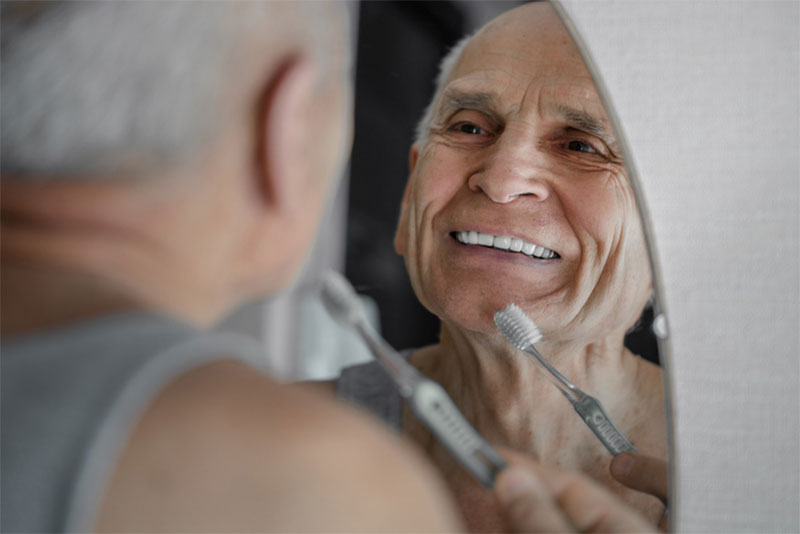
Maintaining independence with Alzheimer’s can feel daunting, but it’s entirely possible by adapting activities.
If you are caring for a person with dementia, you may be inclined to do as much as possible for the person to relieve the strain of even the most basic tasks. Independent living and dementia may even seem like polar opposites. Yet most of us have an innate need to safeguard independence and the freedom to stay in charge of our lives. This is true in spite of Alzheimer’s and other forms of dementia. As a result, it’s crucial to foster independence for the person you love, to whatever degree feasible.
How Can I Encourage Independence With Alzheimer’s?
It takes some extra time and effort to adjust day-to-day activities to promote self-sufficiency, but it will be well worth it. And of course, the stage of dementia is going to be a prominent factor in just how much adaptability is required. Here are a few suggestions to get you started on rethinking how daily activities may be accomplished successfully for someone with dementia.
Preparation and Set-Up
Think through the steps involved in a specific activity, and which might be complicated for the older adult. For instance, reaching up to get a toothbrush out of the medicine cabinet, twisting the lid of the toothpaste, and squeezing out the right amount onto the brush could be challenging. In this situation, before the person comes into the bathroom, take care of those steps, leaving the prepared toothbrush on the edge of the sink. They may then be able to finish the task on their own. Similarly, you can lay out clothing, place food out for making lunch, or whatever advance steps will enable them to handle the activity on their own.
Stand Back But Model and Prompt as Needed
Provide the person some space to attempt the task, but stay within range to provide assistance as needed. This will allow as much independence as possible without causing the person frustration if the task becomes too complicated. Using the example of brushing their teeth, say the individual picks up the toothbrush but seems confused about what to do next. There are many ways for you to offer support. One especially unobtrusive way is by nonverbal modeling. You could pick up your own toothbrush, and while you are both looking at the mirror, begin to brush your own teeth. This might be all that’s needed for the older adult to mimic your actions. If this does not work, try a question prompt, for example, “I see you’re holding your toothbrush; what’s next?”
Use Step-by-Step Instructions
If modeling and prompting are not helping, try breaking the task down into smaller steps and offering verbal tips for every step when necessary. In the example above, it could look something like this: “Let’s place the toothbrush on our teeth. Now we will move the brush back and forth, like this. Next, we’ll take a sip of water and rinse.” After every step, pause and see if the person can carry on independently, and if so, end your verbal coaching and step back once again to allow them to finish the task independently.
Supervise
Regardless of the person’s skill level, don’t forget to stay close enough to ensure safety. This doesn’t mean hovering over the person while they are brushing their teeth. But it does mean being near enough to make certain they’re turning on cold water as opposed to hot to avoid a burn. There is a fine line to walk between safety and independence.
At Compassionate Nursing Services, a provider of dementia care in St. Louis, Chesterfield, O’Fallon, and the surrounding areas, it is always our primary goal to empower older loved ones to maintain independence with Alzheimer’s while prioritizing their wellbeing and safety. Contact us at 314-432-4312 if you’d like to speak with us about any challenges you are facing in taking care of a person with dementia. We’re always here to help.
